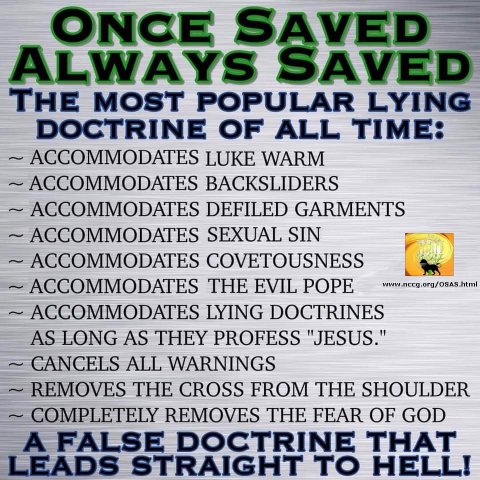Month 11:15, Week 2:7 (Shibi'i/Sukkot), Year:Day 5955:310 AM
2Exodus 9/40
Gregorian Calendar: Sunday 5 February 2023
The Purpose of Life
and the Doctrine of Imputation
Dealing with Life and Death
Second Expanded Edition, 6 February 2023

Introduction
Shabbat Shalom kol beit Yisra'el and Mishpachah and welcome back! Today we are taking another short break from our Book of Revelation Bible Course not so much by choice but by divine instruction. So let me first give you some background to what I propose to do today.
From Justification to Imputation
For the last week I have felt strongly led to finally complete the leader article on the key New Testament doctrine of Justification on our website which I did after a three year hiatus (gap). As Justification is an inregral part of today's subject matter, let me give you a quick reminder of definitions; the word 'justification' (or 'righteousness') is synonymous with 'reconciliation' (Rom.3:23ff.; 5:11,15-21; 2 Cor.5:19), its ground is the grace or undeserved loving kindness of Elohim (God) (Rom.3:23ff.; 14:4; 5:6,8,21; 6:23; cp. Heb.2:9), its means Yah'shua's (Jesus') vicarious or proxy atoning death on the cross (Rom.3:24ff.; 5:9; 2 Cor.5:14; cp. Heb.9:12, etc.), and its only condition is faith sealed by full immersion baptism, both of which imply repentance (Rom.6:3ff., 21; 1 Cor.6:11; Gal.3:26ff., etc.). Note that Christ did not make Himself a substitute from the outside of humanity, but from within by means of incarnation, rendered obedience, and thereby rendered us an ethical justification (Rom.5:15,20). That's Justification in a nutshell - if you'd like to unpack that more carefully and slowly, visit the Justification website because it is a key doctrine of the Besorah (Gospel, Good News).
How Today's Sermon Came About
Anyway, once I had finally completed the leader article on the Justification website, and every time I sat down to prepare the next Book of Revelation sermon, the anointing for that ongoing task was simply not there; and no matter how hard I tried I could not write a single word. And when an anointing ceases that is always a clear signal from Yahweh to stop and listen. So that's why we're pausing at Revelation 12 again and what follows is by divine urging as though this was critically important not only for a particular individual but in cementing firmly the emet (truth) of another key, related doctrine to Christianity/Messianism, namely the doctrine of Imputation which we all need to understand. It is a vital link to an understanding of what Salvation is all about and why we need it, and that, I know you'll agree, is pretty important! So here we are today. And both of these are part of Salvation which is where we must start this morning.
Salvation Explained
Salvation is the all-inclusive word of the Besorah, Gospel or Good News of Yah'shua the Messiah (Jesus Christ) and is pretty much synonymous with 'Christianity' or 'Messianism'. In this all-inclusive word, which Christians and Messianics rightly speak of all the time, since we are literally the 'assembled of the saved' (even Yah'shua's (Jesus') Hebrew name means 'Yah[weh] saves'), lies the raison d'être or 'reason to be' of everything. Our whole existence is wrapped up in it; it's the reason, and only reason, we're here today and on every other moed or divine appointment. The Messianic Community (Church) is the home of 'the saved ones' and of those seeking to be saved.
Like the Birth of a Baby
What do we mean by 'saved' or perhaps the more familiar word 'delivered'? We speak of the safe 'delivery' of a baby into the world which is actually very similar to what biblical salvation is all about, because salvation is all about being 'born again' or 'born a second time' but this time not as a literal physical baby but as a spiritual one. Bloth are critically important in their respective dimensions or sphere. And, perhaps even more importantly, what are we being saved from and, just as importantly, what are we being saved to, are equally important questions? A person who has fallen overboard a ship into the sea needs rescuing, delivering or saving from the sea. If he isn't, he will eventually drown. A drowning man, when he is rescued, is being saved from death (a watery grave) and to life (on terra firma or earth, which is his natural home). He is being rescued from the water and back to the ship he fell off. In any and every rescue operation there is a 'to' and 'from' component.
 Initial salvation is like a new birth
Initial salvation is like a new birth
Salvation as Rescue from Spiritual and Physical Death
When Christians/Messianics speak of 'salvation' we mean rescue from death (spiritual and physical) - to life (again, spiritual and physical). Spiritual salvation is the rescue from sin (which is man's transgression of Yahweh's Torah or Law) resulting in relationship separation from Elohim (God) and from other people, and to eternal life and relationship restoration, from one (lesser) quality of life to another (higher quality). Salvation in the physical sense is from mortality (permanantly dying physically) to immortality, and specifically to a state of non-death (to a state of permanent, uninterruptible physical life) which is called resurrection life. That's what salvation is all about and why it is we need a Saviour, because Yah'shua the Messiah, Jesus Christ, is the only person who has been permanently raised from the dead and is alive today in an immortal physcial body and in communication with His authentic, spiritually born-again or regenerated followers. So salvation has two components - spiritual and physical.
 Salvation is rescue from sin and death to new, eternal life in Christ
Salvation is rescue from sin and death to new, eternal life in Christ
Facing Death
Death rightly scares us because of its inevitability and (from an earth-bound perspective) apparent permanency. One day we will have to face our own deaths. When you're young you don't usually have to worry too much about it because you have 'a life ahead' of you...until someone you love dies. Then it stares at you, like a monster, in the face. From the point-of-view of someone on earth, there is an awful sense of finality about it because dead people don't come back and seem to cease existing totally. My first experience of death was as a teenager when I was escorting an old lady home from a social gathering in our home village in England. She lived on our street and was the widow of a Labour MP. She died in my arms on a dark country lane. It was scary because I was totally unprepared. But I didn't know her personally so I had no idea what her family was about to go through.
When Your Own Parents Die...
But when my own father died it literally knocked me for six and the memory of his funeral is still as vivid to me today as it was back then because I was in such emotional distress. Worse, I was abroad when he died so there was no chance of sharing a last time together. It was devastating even though I was by then a believer and had the hope of the resurrection. Many of you here of my age know what I am talking about. And then, not so long ago, my own mother died. That too was devastating though slightly easier as I had been through my own father's death first and knew what to expect. When your parents die, your past dies. When one of your children dies, that's even more devastating, and I know a number of people who have been in that situation. Then your future dies. When your spouse or sibling dies - a husband, wife, brother or sister - then something of your present dies too. Whether past, present or future, the loss is huge and must be faced. Many go into denial because they can't face it. Yet we must. It's a part of reality and something we were intended to grapple with to show us the monstrosity of sin, because it was sin that introduced death into this previously paradisaical world.
 Death is a terror and came into the world because of sin
Death is a terror and came into the world because of sin
We are Designed to Know the Purpose of Life
The future is important to us. Nobody wants to die and nobody wants loved ones to die, especially precious members of ones own family. Humans were designed to cling to life, to fight for life, because life is sacred. But more than that, we were designed to seek for a better quality of life while still alive. Something in us all wants life to be both better and forever. To improve the quality of our life we have to answer the three big questions:
- 1. Where did I come from?
- 2. Why am I here?; and
- 3. Where am I going after I die?
The Atheist's Answer
We're the only species that thinks about such things. Atheists tell you that those questions have no meaning because we are products of chance - of the random interaction of atoms and molecules; we 'come' from our parents, the 'reason' is because they were intimate with each other, and where you're 'going' is permanently into the ground to decompose where you will cease to exist. These same atheists will tell you that mankind invented religion for comfort in a hostile world, because people are afraid of the dark, of the unknown - of not knowing the answers to these and related questions; so humans grasp for an imaginary, comforting father-figure in the heavens...a 'pie-in-the-sky' dream that can give us assurance in the face of the meaninglessness of our short existence and eventual non-existence. To which someone who has been saved and spiritually regenerated, who has met the resurrected Messiah, who knows where he came from, who knows why he is here on earth, and who knows what is going to happen after he dies, responds by saying that the reason the atheist chooses to believe in his nihilistic vision of existence is because, in the words of Mathematician Professor John Lennox of Oxford University, he is afraid of the light - he's afraid of the truth, of reality, which he often chooses to ignore because he doesn't want to live the way Yahweh-Elohim, the Creator, expects him to. And I say this as an ex-atheist who had his excuses for not believing. What was my personal reason? Because I didn't want to be like the stuffy Anglicans I knew growing up, whose lifestyle, frankly, seemed dull and hypocritical to me. But neither I, nor many, if not most, of them had ever met the risen Messiah; the only ultimate ground for faith is in knowing the Son of Elohim (God) personally. Christianity is about an eternally living Person, who once lived and died on earth like you and me, who experienced life to the full and understands our struggles.
 The atheist worldview is the complete reverse of the Christian one
The atheist worldview is the complete reverse of the Christian one
The Good News of the Purpose of Life
The Besorah, Gospel or Good News of Yah'shua the Messiah (Jesus Christ) is that there totally is a purpose for life and that death is not the final answer to life, however well or badly lived. And He proved it by rising up from the dead as a permanently immortal Being, with hundreds of witnesses to the events surrounding his death, resurrection, and ascension to heaven - those witnesses are important for those of us who were not eye-witnesses 2,000 years ago. Life after death is guaranteed to everyone because of His resurrection but the kind or quality of life after death is up to us and our choices while we're physically alive here on earth. And the most important choice anyone has to make is whether or not they wand to be saved from spiritual death as a resurrected being, to enjoy eternal, quality life, or whether we want to spend eternity in what is effectively a twilight zone.
 Yah'shua proved His claims by permanently rising physically from the dead
Yah'shua proved His claims by permanently rising physically from the dead
Suicide is Not the Answer
As a footnote to that thought may I add this: suicide is not a solution - it just makes things worse, both for the one taking his own life and those left behind to grieve. I say that as one who has lost friends and acquaintances that way.
The Reason We Gather
We gather every Sabbath, New Moon and Annual Festival to talk about these things, to learn how to spiritually grow and to share the Good News with others so that they can be rescued from the despair of atheism, agnosticism (undecidedness) and false religion. We also gather to discuss how those thus saved or rescued can live better and more beautiful lives, day by day and to give answers to seekers who come to them for help. We don't, as so many desperate intellectual atheists have done (like Arthur Köstler, a scientists and historian I admired as a young man), have to kill ourselves in desperation because they unpacked their atheistic worldview and took it to its meaningless conclusion.
 Suicide is not the answer!
Suicide is not the answer!
The Need for Maintenance on a Fallen World
Unfortunately - and this is a real tragedy - a lot of Christians are only ever taught half the story. For many millions believe that once they have made a simple 'yes' choice for Christ that that's all there is to it; they're told that they don't need to worry about the quality of life they live thereafter because that initial choice was their guarantee to heaven. They are like the man who buys a house and neglects it so that is slowly falls apart and given sufficient time eventually falls down completely. One thing that sooner or later becomes abundantly clear to those who care is that living in a mortal sphere requries constant maintenance. As a home owner I have spent far more time and money on maintaining my property than in actually buying it. Simply buying a house in good condition is not a guarantee that it will remain in good condition thanks to the Third Law of Thermodynamics which states that physical matter tends to disorder and decay, a reason why the physical resurrection of the whole planet is also extreemly good news! The resurrection of Christ isn't just about us as individuals, but about the whole of Creation. Pain, sorrow and death are all one day coming to an end. And it's not a 'pie-in-the-sky' dream either. It will be done because Yahweh, our Heavenly father, desires it to be done. The mortal, entropy-impacted physical world we live in is only temporary. And it's here for a purpose - it's humanity's testing ground - until it, itself, is transformed and resurrected supernaturally free from all decay and instability.
The Reason We Want and Need Salvation
Now I hope in making that introduction I have persuaded most, if not all of you, that there is a very sound reason for wanting, and needing, salvation...and why the authentic version is the only version that actually works. I also hope I have persuaded you to agree with me that that once saved or rescued we have to stay saved or rescued, that it isn't automatic. You see, not every Christian believes that, because they have been taught the lie that 'once rescued, always rescued'. They believe, as it were, that someone who has fallen overboard a ship and accepts rescue from the sea, will, even if he falls overboard again, automatically be rescued even if he chooses to jump overboard and even if he refuses to be picked up by a lifeboat. Hard to believe? Well, we need to talk a little about that today. This sermon has lain heavily upon me and so what you're going to get served over the next hour is, I hope, will be a highly abridged version of the 'Manual of Divine Rescue' and how to remain rescued and prospering.
The Need for Expertise
So how simple or complex is salvation as taught in the Bible? It is in the nature of carnal man to want easy solutions to fix difficult problems, the reason so many seek out temporary band-aid solutions instead of permanent fixtures. And as everyone knows, relationships - particularly damaged ones - are amongst the most difficult things to fix, sometimes appearing impossible. I learned early on when I was a teenager that fixing complicated things...well, it ain't easy. I owned a small reel-to-reel tape recorder when I was a young teen and it started to malfunction. 'Oh,' I thought to myself, 'easy-peasy' because it was so small, so I set about taking the machine apart with a screwdriver. I ended up with hundreds of components scattered across a table; I had no repair manual, and, worse, I didn't record what I did. So 'once dismantled', it remained 'always dismantled' because I didn't have a clue how to put it together again. My memory simply wasn't good enough...plus I didn't know much about electronics or tape recorder mechanics. Even today, though I know a lot more, I know better than to try and fix all but the simplest faults without the help of an expert...or getting a training. Life is no different, whether physical/medical or spiritual. That's why we have experts or professionals...and ministers...and parents.
 A tape recorder contains many hundreds of electronic & mechanical parts
A tape recorder contains many hundreds of electronic & mechanical parts
The Sixty Elements of Salvation
Did you know that the doctrine of salvation contains at least sixty (60) different, though closely related, elements which taken together show us how to be delivered from dangers, troubles, sin, disease and poverty? What the Bible calls 'salvation' takes in deliverance from every phase of sin, including inbred or inherited sin or what Scripture calls the 'old man' - the fallen, carnal, fleshy Adamic nature, which is the natural habitat of Satan, which we must be quit of if we're going to get spiritually ahead. Sixty elements! And you can, and should, become aware of each of them even if not all at once.
A Quick Summary
So that you have some idea what the scope of salvation consists of, let me give you the very briefest of summaries of its 60 elements...a Grand Tour, as it were. If you're watching this presentation on video, you'll find the website article contains detailed notes and Scripture references which you can follow up on. Those of you in this assembly are now being given a handout. So I am not going to discuss or explain any of these today, just give you, as it were, quick 'headings' and one sentence definitions for what could be 60 separate sermons in and of themselves! So I am just going to run these off like a tennis ball lobbing machine and leave you to ponder the details after you have done your own research. If you want to talk more about any of these topics, approach me later, or write in, and I'll see what I can do.
Salvation as a Multifaceted Diamond
So what I would like to ask you to do is imagine Salvation as being a very large diamond with at least 60 faces, each pointing in a different direction, and each face representing its many phases. These consist of:

repentance1 - a change of mind, a new mind about Yahweh (Mt.3:2; 4:17; Lk.13:1-5; 24:47; Ac.2:38; 3:19; 10:43; 2 Cor.7:9-10; 1 Jn.1:9)
conversion2 - a change of direction, a new walk with Yahweh (Ps.19:7; 51:13; Mt.18:3; Lk.22:32; Ac.3:19; Jas.5:19)
regeneration3 - a change of nature, a new nature before Yahweh (Jn.3:3-5; Rom.3:24-25; 2 Cor.5:17; Tit.3:5; 2 Pet.1:4-14)
adoption4 - a change of family, a new relationship with Yahweh (Rom.8:14-23; Gal.4:5; Eph.1:4; 3:15; Jn.1:12; 3:16; 1 Jn.3:8-10; 5:1-18)
washing5 - a change of morals, a new creature before Yahweh (1 Cor.6:9-11; Eph.4:24; 5:26; Tit.3:5; Rev.1:5; 7:14; Jn.15:3; Is.1:16-18)
redemption6 - a change of owners, a new master in Yahweh (Rom.3:24-25; 6:16-23; 1 Cor.1:30; 3:16; 6:19-20: Gal.3:13; Eph.1:7; CDol.1:14,22; 1 Pet.1:18-23)
propitiation7 - a change of clothing, a new covering of sins before Yahweh (Rom.3:24-25; 4:7; 1 Jn.2:1-2; Ps.32:1; 85:2; 1 Pet.4:8)
grace8 - a change of favour, a new standing before Yahweh (Jn.1:16-17; Rom.5:1-2; Eph.2:1-9: Tit.2:11-14; 2 Pet.3:18)
imputation9 - a change of accounts, a new debt to Yahweh (Rom.1:14; 4:1-11,22-24; Gal.3:6-14; Jas.2:23; 2 Cor.5:17-19)
forgiveness10 - a change of judgment, a new pardon by Yahweh (Ps.103:3; Eph.1:7; CFol.2:13; 1 Jn.1:7-9; Lk.24:47; Ac.10:43)
deliverance11 - a change of bondage, a new liberty before Yahweh (Lk.4:18; Gal.5:1,13; Heb.10:19; 2 Cor.3:6-18; Jas.1:18-25)
faith12 - a change of confidence, a new trust in Yahweh (Mk.9:23; 11:22-24: Rom.1:16-17; 4:1-25; 10:9-17; Heb.11; 12:1-2; 2 Pet.1:5)
blood13 - a change in life, a new life from Yahweh (Lev.17:11; Mt.26:28; Rom.5:1-11; 6:1-23; 8:1-13; Eph.1:7; 1 Jn.1:7; Rev.1:5; 5:8-10)
forebearance14 - a change of attitude; a new patience in Yahweh (Eph.4:2; 2 Tim.2:24; Rom.3:24-25; 5:1-4; 15:4-5; Col.3:13; Jas.1:3-4)
reconciliation15 - a change of friendship, a new union with Yahweh (Rom.5:10; Eph.2:14-16; Col.1:20-21; 2 Cor.5:17-20; Heb.2:17; 1 Cor.6:17)
substitution16 - a change of victims, a new sacrifice to Yahweh (Gen.22:8,13; Is.53; Heb.10:5-18; 1 Cor.5:7; Rom.12:1-2; Heb.13:15)
representation17 - a change of agency, a new representative before Yahweh (Rom.8:26-27; 1 Tim.2:5; Heb.2:18; 4:14-16; 5:5-10; 7:24-28; 9:1-28)
new birth & sonship18 - a change of parents, a new Father in Yahweh (Mt.6:8-9; Jn.1:12; 3:1-18; Gal.4:5-6; Heb.12:7; 1 Jn.3:1-3; 5:1-5,10-18)
heirship19 - a change of fortune, a new inheritance in Yahweh (Rom.8:17; Gal.3:29; Heb.1:4; 9:15; Jas.2:5; 1 Pet.1:4; Eph.1:11-18)
prayer20 - a change of communication, a new approach to Yahweh (Mt.6:9; 7:7-11; 21:22; Mk.11:22-24; Jn.14:12-15; 15:7,16; 16:23-26; Heb.10:19-23; 11:6; 1 Jn.3:22; 5:14-16)
election21 - a change of office, a new position in Yahweh (Mt.20:16; Eph.1:4; Rom.8:33; 1 Pet.1:2; 1 Thess.12:4; 2 Pet.1:10; Jn.15:16)
righteousness22 - a change of acts/deeds/works, a new obedience to Yahweh (Rom.4:1-25; 6:11-22; 8:3; Mt,6:33; 1 Jn.2:29; 3:7,10; 1 Cor.1:30; Eph.4:24)
crucifixion23 - a change of death, a new subjection to Yahweh (Rom.6:3-22; 8:13; Gal.2:20; 5:24; 6:14; 2 Cor.5:17; Col.3:5-10)
restitution24 - a change of dealings, a new honesty before Yahweh (Ex.22:1-12; Lev.6:4-5; 24:21; Prov.6:31; Lk.3:8; 19:8)
retribution25 - a change of vengeance, a new attitude before Yahweh (Mt.5:39; 7:12; Lev.6:4-5; 9:51-55; Rom.12:17-21; Heb.10:30; 1 Cor.6)
ransom26 - a change from slavery, a new release by Yahweh (Job 33:24; Mt.20:28; 1 Tim.2:6; Gal.5:1; 6:1; Rom.6:3-6,11-23; 8:1-13)
mortification27 - a change of practice, a new conduct before Yahweh (Rom.8:13; Col.3:1-17; Mk.11:24; Mt.5:6; 1 Jn.4:19)
consecration28 - a change of devotion, a new offering to Yahweh (Rom.12:1; 2 Cor.8:5; Ac.6:4; 1 Tim.4:13-15; Heb.13:15)
assurance29 - a change of security, a New Covenant with Yahweh (Col.2:2; 1 Thess.1:5; Heb.6:11; 10:19-23; 2 Tim.3:14; 2 Pet.1:4-14)
humility30 - a change of spirit, a new temperament in Yahweh (Mt.18:1-4; Ac.20:19; Col.3:5-17; 1 Pet.5:5-6; Jas.4:6-11)
love31 - a change of affection, a new devotion to Yahweh (Dt.6:5; Mt.22:37; Rom.5:5-8; Jn.13:34-35; 1 Cor.13; 1 Jn.3:11-18; 4:7-21; Gal.5:21-22)
joy32 - a change in emotion, a new delight in Yahweh (Neh.8:10; Ps.16:11; 51:12; Lk.19:37; 24:52; Jn.15:11; 1 Pet.1:8-9; Gal.5:21-22)
peace33 - a change in mind, a new tranquility in Yahweh (Ac.10:36; Rom.5:1; 14:17; 15:13; Eph.2:14-18; Col.1:20; Gal.5:21-22)
longsuffering34 - a change in forebearance, a new endurance before Yahweh (Gal.5:21-22; Mk.4:17; 2 Tim.2:3; 4:5; Jas.5:11: Rom.5:1-8)
gentleness35 - a change in manner, a new behaviour before Yahweh (Gal.5:21-22; 1 Thess.2:7; 2 Tim.2:24; Tit.3:2; Jas.3:17)
goodness36 - a change in virtue, a new holiness to Yahweh (Gal.5:21-22; Rom.15:14; Eph.5:9; Phil.4:8; 2 Pet.1:3-14)
meekness37 - a change of disposition, a new humility before Yahweh (Gal.5:21-22; Num.12:13; Ps.76:9; 149:4; Eph.4:2; Col.3:12: 1 Tim.6:11)
temperance38 - a change to moderation, a new sobriety before Yahweh (Gal.5:21-22; Ac.24:25; 2 Pet.1:3-14; 1 Cor.9:25-27; Tit.1:8; 2:2)
revelation39 - a change of knowledge, a new doctrine from Yahweh (Mt.11:25; 13:35; 16:17; Dt.29:29; Rom.1:17; 1 Cor.2:10; Eph.1:17; 3:1-11)
conviction40 - a change in the sense of guilt, a new awakening before Yahweh (Jn.8:9; 16:7-12; Ac.2:37; 18:28; 1 Cor.14:24; Jas.2:9)
remission41 - a change of sentence, a new justification by Yahweh (Mt.26:28; Lk.24:47; Ac.2:38; 10:43; Heb.9:22)
healing42 - a change in health, a new health in Yahweh (Ps.91; 103:3; Mt.8:17; Is.53; Rom.8:11; 1 Pet.2:24; 2 Jn.2; Jas.5:14-16)
soundness43 - a change of condition, a new perfection in Yahweh (Prov.8:14; 14:30; Ps.91; Col.2:10; 2 Tim.1:7; 1 Tim.1:10; Tit.1:9,13; 2:1-8)
creation & transformation44 - a change of likeness, a new image before Yahweh (2 Cor.3:18; 5:17; Rom.12:1-2; 6:3-22; 8:1-13; 2 Pet.1:3-14; Col.3:1-17; Gal.5:16-26)
sanctification45 - a change of service, a new separation to Yahweh (Jn.10:36; 1Cor.6:11; 2 Tim.2:21; Ex.13; 30:39; 40:10-11; Lev.27:14-27; Jer.1:5)
justification46 - a change of state, a new righteousness in Yahweh (Rom.3:20-30; 5:1; 9:12; 1 Cor.6:11; Gal.3:6-14; Ac.13:38-39)
preservation47 - a change of assurance, a new security in Yahweh (Ps.37:28; 145:20; 2 Tim.4:18; Phil.1:6; 1 Thess.5:23; Jude 20-24; 1 Pet.1:5)
providence48 - a change of supply, a new provision in Yahweh (Mt.6:33; Phil.5:18; Mk.11:22-24; Jn.15:7,16; Ps.84:11)
baptism into Christ49 - a change of elements, a new burial in Yahweh (Eph.2:1-9; Rom.6:3-6; 1 Cor.12:13; Gal.3:27; 5:24; Col.2:11-17)
resurrection50 - a change in substance, a new body and life given by Yahweh (1 Cor.15:21-58; Phil.3:20-21: 1 Thess.4:13-17; 1 Jn.3:1-3; Jn.5:28-29)
predestination51 - a change of decree, a new destiny in Yahweh (Rom.8:28-30; Eph.1:5,11; 3:10-11; 1 Pet.1:2-13; 2 Pet-1:4-14; 2 Cor.3:18)
foreknowledge52 - a change in revelation, a new knowledge of Yahweh (Rom.8:28; 11:2; Ac.2:23; 1 Pet.1:2; Eåph.1:1-17; Mt.11:25; Dt.29:29)
foreordination53 - a change in appointment, a new future in Yahweh (Rom.3:25; Jn.15:16; 1 Thess.5:9; 1 Pet.1:20; Eph.1:10; 2:7; 3:10-11)
power54 - a change in authority, a new power in Yahweh (Lk.24:49; Jn.14:12-14; Mk.16:15-20; Ac.1:8; 1 Cor.12-14; Eph.1:19; 3:19-20; Heb.2:3-4; Mk.11:22-24)
glorification55 - a change of realm, a new dominion with Yahweh (Rom.8:17,30; Ac.3:13; Phil.3:21; 1 Cor.15:21-58; Rev.5:10; 20:1-7)
destination56 - a change of dwelling, a new home with Yahweh (Jn.14:1-3; Heb.11:10,13-16; 13:14; Rev.3:12; 21:1-22:5)
holiness57 - a change in living, a new conformity to Yahweh (Rom.6:16-23; 8:1-13; 12:1-2; 11:16: 1 Cor.3:16-17; 6:19-20; 2 Cor.5:17; 7:1; Heb.12:14; Rev.20:4-6)
life58 - a change of existence, a new eternal life with Yahweh (Jn.3:16-30,36; 5:24; 17:2-3; 1 Jn.2:24-25; 5:11-12; 1 Thess.4:13-17)
mercy59 - a change of heart, a new disposition in Yahweh (Mt.5:7; Rom.12:8-19; Jas.2:13; Lk.6:36; Phil.2:1; Col.3:12)
inspiration60 - a change of thoughts, a new influence from Yahweh (1 Cor.2:9-14; 2 Tim.3:15-17; Jn.14:16-17,26; 16:7-15; 1 Jn.2:27).
 Salvation is like a multi-faceted diamond
Salvation is like a multi-faceted diamond
A Useful Reference Sheet
Now please understand right away, that not one of the 'phases' or 'faces' of salvation' which I have just listed should be understood as a separate work from the salvation of which it is a part. You can't possibly receive salvation and not have every one of the 60 'phases' at least started in a person that has to do with sin and the overcoming of sin. They all have an initial and instantaneous, as well as a progressive, aspect until they are completed in the long-term future. What I love about this list is that it gives me reference pointers as to where I am in my salvation - whether it's progressing, whether it's stationary/stagnant, or whether it's deteriorating.
Initial Stages of Salvation
Although salvation and all its various phases that deal with sin - when you repent and believe in the Besorah (Gospel, Good News) - you are received by emunah (faith) in the initial stages; these phases continue in operation in the believer from the time of salvation until you receive and enter into the final stage of salvation at your death which is then sealed in the resurrection [1]. Salvation, in the general sense of the word, includes even the redemption of all creation at the end of the Millennium [2] - it's not just about us as individuals. If salvation takes in everything affected by the Fall, then it is easy to see how it takes every phase of deliverance for man in the process of redemption from its beginning to its completion. It isn't a magical pill that you swallow at the beginning and then walk away and carry on sinning as once you did before. Salvation starts something wonderful off, a process, but it's a work always in progress like releasing wildlife into a newly fenced-off game reserve. The animals will take care of themselves by and large but we have to guard them against poachers and intervene when disease threatens or people damage their spiritual habitat. Salvation, like the game reserve, has to be maintained...like most things in this world of sin and decay.

Whence Cometh 'Imputation'?
So that is the broad sweep of Salvation with its 60-plus elements. That's all I want to say about it today. I wanted us to first of all have that overview as we now zoom into just one of those phases, Imputation (#9 on the list), which will also give you an idea of how we could invest study time in all 60. First of all let me say that this English word is not found in most English translations of the Bible, and where it does appear, it doesn't occur very often and translates a variety of Hebrew and Greek words [3]. It is used in the King James Version (KJV - also the RSTNE which is based on the KJV), New King James Version (NKJV), New American Standard Bible (NASB) and one or two others. You won't find it, for example, in a modern version like the New International Version (NIV) where other words are used. Even more interestingly, you won't find the word 'imputation' listed in most theological dictionaries or study Bibles, whether conservative or liberal. I have several from different denominational traditions and it's in none of them.
A Word With Dense Theological Meaning Cemented Over Centuries
Why, then, are we paying attention to it? Because in theological circles it is a word frequently used and is dense with theological meaning as the result of a long, complicated historical process thrashed out in various Protestant councils, particularly in Calvinist circles. There it is regarded as one of the central doctrines of the faith where it acquires a life all of its own independent of what Scripture actually says. And it's used in a way by such as Calvinists to justify its peculiar and unbiblical TULIP doctrine which is an acronym for the Total Depravity of man, Unconditional election, Limited Atonement, Irresistable Grace and the Perseverance of the Saints. If you want an overview of Calvinism, visit our Agency website. Incidentally, the word is completely absent from my thick 843 page-long Catholic Dictionary (1955) and from The Concise Oxford Dictionary of the Christian Church edited by E.A.Livingstone (1977).
IMPUTATION & ROMANS 4:1-25
Today we are going to take a look at the text used by Calvinists to justify their peculiar beliefs, namely Romans 4:1-25, where the word 'imputation' or equivalent is used 5 times (vv.6,8,11,23-24). It's also found elsewhere in the same places in both the KJV and NKJV (Rom.5:13; 2 Cor.5:19) but only in Romans 5:13 in the NASB. More recent conservative versions like the English Standard Version (ESV) prefer to use the word 'count'. Others, like the liberal New Revised Standard Version (NRSV) and messianic Hebraic Roots Version (HRV) prefer 'reckon' and yet others 'calculate' (KNT) and 'credit' (NIV). All of these versions are, of course, talking about the same thing; however there is no equivalent English word to 'imputation' for 'reckon' and 'count' which is why the word imputation continues to be used in theology. What we're going to do is read together the doctrinally important passage in Romans, chapter 4, using the NIV and I'll include all the variant words so that you get the gist of what Paul is saying and then we'll look at some of the false interpretations made by Calvinists and others:
"1 What then shall we say that Abraham, our forefather, discovered in this matter? 2 If, in fact, Abraham was justified by works (deeds, 'legalistic observances' - JNT), he had something to boast about - but not before Elohim (God). 3 What does the Scripture say? 'Abraham believed Elohim (God), and it was credited (imputed, calculated, reckoned, counted) to him as righteousness.' (Gen.15:6)
"4 Now when a man works, his wages are not credited (imputed, calculated, reckoned, counted) to him as a gift, but as an obligation. 5 However, to the man who does not work but trusts Elohim (God) who justifies (declares legally righteous) the wicked, his faith is credited (imputed, calculated, reckoned, counted) as righteousness. 6 David says the same thing when he speaks of the blessedness of the man to whom Elohim (God) credits (imputes, calculates, reckons, counts) righteousness apart from works ('legalistic observances' - JNT):
"'Blessed are they whose transgressions are forgiven, whose sins are covered. 8 Blessed is the man whose sin Yahweh will never count against him ('reackon against his account' - JNT; Ps.32:1-2).'
"9 Is this blessedness only for the circumcised, or also for the uncircumcised? We have been saying that Abraham's faith was credited (imputed, calculated, reckoned, counted, 'credited to his account' - JNT) to him as righteousness. 10 Under what circumstances was it credited (imputed, calculated, reckoned, counted)? Was it after he was circumcised, or before? It was not after, but before! 11 And he received the sign of circumcision, a seal of the righteousness that he had by faith while he was still uncircumcised. So then, he is the father of all who believe but have not been circumcised, in order that righteousness might be credited (imputed, calculated, reckoned, counted) to them. 12 And he is also the father of the circumcised who not only are circumcised but who also walk in the footsteps of the faith that our father Abraham had before he was circumcised.
"13 It was not through torah (law) that Abraham and his offspring (Gen.15:3,5) received the promise that he would be heir of the world, but through the righteousness that comes by faith (trusting). 14 For if those who live by torah (law) ('produced by legalism' - JNT) are heirs, faith has no value and the promise is worthless, 15 because law brings wrath ('punishment' - JNT). And where there is no law there is no transgression.
"16 Therefore, the promise comes by faith, so that it may be by grace (undeserved loving-kindness) and may be guaranteed to all Abraham's offspring - not only to those who are of the Torah (Law) but also to those who are of the faith of Abraham. He is the father of us all. 17 As it is written: 'I have made you a father of many nations.' (Gen.17:5) He is our father in the sight of Elohim (God), in whom he believed - the Elohim (God) who gives life to the dead and calls things that are not as though they were.
"18 Against all hope, Abraham in hope believed and so became the father of many nations, just as it had been said to him, 'So shall your offspring be.' (Gen.15:5) 19 Without weakening in his faith, he faced the fact that his body was as good as dead - since he was about a hundred years old - and that Sarah's womb was also dead. 20 Yet he did not waver through unbelief regarding the promise of Elohim (God), but was strengthened in his faith and gave glory to Elohim (God), 21 being fully persuaded that Elohim (God) had power to do what He had promised. 22 This is why 'it was credited ['to his account' - JNT] (imputed, calculated, reckoned, counted) to him as righteousness.' (Gen.15:6) 23 The words 'it was credited (imputed, calculated, reckoned, counted) to him ('to his account' - JNT)' were written not for him alone, 24 but also for us, to whom Elohim (God) will credit (impute, calculate, reckon, count, 'have our account credited' - JNT) righteousness - for us who believe in Him who raised Yah'shua (Jesus) our Master (Lord) from the dead. 25 He was delivered over to death for our sins and was raised to life for our justification (being declared righteous)" (Rom.4:1-25, NIV).
Logizomai
The word 'impute' in Romans 4:8 is from the Greek logizomai and is translated 'numbered' (Mk.15:28), 'accounted' (Rom.8:36; Gal.3:6), 'accounting' (Heb.11:19), 'account of' (1 Cor.4:1), 'counted' (Rom.2:26; 4:3,5; 9:8), 'count' (Phil.3:13), 'laid to their charge' (2 Tim.4:16), 'reckoned' (Lk.22:37; Rom.4:4,9-10), 'reckon' (Rom.6:11; 8:18), and 'impute' (Rom.4:6,8,11,22-23; 2 Cor.5:19; Jas.2:23).
 Logizomai - imputation
Logizomai - imputation
How We are Declared Legally Righteous Before Yahweh
Romans 4:1-25 tells us that we become legally declared righteous by steadfastly trusting in Yah'shua (Jesus) without any regard to works or to the Torah (Law). It is our steadfast faith or faithfulness that makes us right with Yahweh. It is our faith - our trusting - and our faithfulness (obedient loyalty) to our Heavenly Father that justifies and so places us in initial and continuing right-relationship with Him. In other words, we are saved - and remain saved - by that ongoing trusting faithfulness.
Seven Serious Calvinist Errors About Imputation
However, Calvinists (members of the 'Reformed Church' and some other denominational groupings) take this truth one step too far and have managed to come up with 7 serious errors that pervert this beautiful truth that I am now going to list for you and then talk about, remembering as we must that salvation - as we saw earlier has at least 60 or more 'phases', 'aspects' or 'faces'. Here are the 7 dangerous errors that make believers careless in their discipleship and even lead many to shipwreck their faith on the treacherous rocks of false doctrine:
- 1. That Yahweh cannot , and will not, credit, impute, calculate, reckon, or count sin (as well as righteousness) to the believer too;
- 2. That a man's sins - past, present and future - are forgiven once and forever without any confession, repentance, and turning from sin to a life of holiness;
- 3. That Elohim (God) cannot 'see' the sins of the saved, or that they are not real sins, as opposed to the way these transgressions are visible if they are committed by sinners or unbelievers;
- 4. That Elohim (God) sees only the penalty that was paid for the sins and He excuses the sinner and credits, imputes, calculates, reckons, or counts him as qadosh (holy, set-apart) as if he had not committed sin;
- 5. That it is no part of the work of Elohim (God) to improve human nature or character;
- 6. That man can be as filthy as a sewage tank and as sinful as Lucifer and still be saved ('Once Saved, Always Saved'); and
- 7. That whatever sins a saved man commits are never held against him, but they are credited, imputed, calculated, reckoned, or counted to Christ without any obligation on the part of the believer.
Those are seven false uses of 'imputation'.
 Click the image above to go to the website
Click the image above to go to the website
Degrading the Character of Elohim
Now you may think it incredible that millions of Protestant Christians (not all Protestants, mind you) believe one or more of these seven lies which, when you think carefully upon them, are in fact some of the most blasphemous and slanderous statements about Elohim (God) and the Besorah (Gospel, Good News) that could ever be made and which are able, over time, to lead a soul into hell. Fully-fledged Calvinists believe all seven falsehoods, a reason their 5-point TULIP teaching is especially dangerous and why I am most determined to expose this false gospel that degrades the character of Elohim (God).
1. A 'Once Saved, Always Saved' Half-Truth
Let's take a look carefully at all of this and begin with a false statement made by Calvinists:
#1. "Christ bore the sins of the saved and therefore they cannot be charged to His account again, and that even in civil courts a man cannot be charged twice with the same crimes". Now this argument is, at best, a half-truth as it only deals with past sins which have been forgiven and put away. It could not possibly include future sins until they have been committed, repented of, and have been cleansed by the precious blood of Messiah in the same way the past sins were. In the words of the apostle John, speaking to already saved souls:
"If we confess our sins, He is faithful and just to forgive us our sins and to cleanse us from all unrighteousness" (1 John 1:9, NKJV).
Substitutionary Atonement and Impartation in the Present
The truth is that Yah'shua (Jesus) has already paid the penalty for the past, present and future sins of sinners as well as the saved (Rom.5:8; Gal.1:4; 1 Pet.2:24; 3:18; Heb.2:9). But this substitutionary work (substitutionary in the sense that He swapped places with us and paid the legal price for our wrong-doing) cannot be imparted until the individual accepts it and conforms to the requirements of repentance and faith in the blood of Christ (Jn.3:16-20; Mk.16:15; 1 Tim.4:10).
No Need for Preachers or Churches?
The very fact that all sinners are not saved proves this. If men cannot be damned for sins which Christ atoned for, and if the paying of the penalty was all that was necessary for men to be saved, then naturally all would be saved alike without any confession of sins and faith in the blood of Christ. In this absurd case, all men are saved because Christ paid the penalty for them and we do not need preachers or churches/assemblies at all to get men saved. Surely no sane person could believe this and still believe the Bible.
The OSAS Free Pass to Sinning
Thousands of OSAS preachers seem to spend their whole effort in getting men saved and then they convince them that whatever they do after their salvation will not be charged to their account. They're in effect given a free pass to do whatever these initially saved people want because what their initial salvation was in the past is a free ticket for salvation in the future. It's at this point they depart from the Besorah (Gospel, Good News) and start reasoning like small children.

An Illustration from the Civil Courts
Naturally, no civil court will charge or punish a man for a crime that has been paid for, but let that same man commit the same crime again, and guess what happens? The same court will charge him afresh for the same crime he committed previously and punish him accordingly. It happens all the time with habitual criminals. Those of you familiar with the British BBC sitcom TV series, Porridge, about an habitual criminal called Stanley Fletcher who keeps going back into prison time and time again for the same petty theft crimes, will get my meaning. If he pays the penalty for the second crime and is again turned loose and he commits the same crime again a third time on the grounds that he had paid the penalty for that crime, not only once but twice, he will again be punished and it will go even harder with him than it did the first time. Since the purpose of imprisonment is supposed to be reformatory, the habituial criminal often gets a longer sentence the second and third times round, a principle reitterated by Yah'shua (Jesus) in the parable of the person having < a demon cast out only to have seven times more demons enter upon recommitting the same sin (Mt.12:43-45). Clearly, deliverance (salvation) from demon oppression doesn't guarantee the demon won't return if the sin is recommitted - indeed, more will come, and the lot of the one so possessed will be even worse than at the beginning.
 The habitual criminal Fletcher serves multiple
The habitual criminal Fletcher serves multiple
terms of imprisonment for the same crime
A Chaotic OSAS World Filled With Injustice
No court would be just in releasing a man and giving him unlimited freedom to go out and commit a crime similar to the one he has already paid for. What kind of a world would we have if this were to be the way human governments treated criminals? It would not be safe to live on earth, and we all know this perfectly well! No sane, righteous, and just human being would tolerate such a government that would deal with criminals in this way. Indeed, such behaviour on the part of a court would make a mockery of the whole concept of justice: there would be no justice. A murderer could be sentenced to, say, 30 years imprisonment and then be free, upon his release, to murder as many times as he wants thereafter without there being any consequences for him.
If We Were to Do Away With All Laws...
Suppose, for the sake of argument, we did away with all the laws in this country - what kind of criminals would we automatically create? What kind of conditions would exist without law and restraint in a few years' time? Anarchy - complete chaos. How could a government justify itself? It would have to reinvent language - create an Orwellian 'Newspeak' - so that it makes no sense, causing a breakdown in communications too. Yet this is the kind of doctrine that whole Protestant denominations are advocating. (And sadly this is exactlty what is happening to our legal system of the postmodern 'woke' culture in the West now).
 Anarchy always results from lawlessness
Anarchy always results from lawlessness
There Must Be Penalties for Laws That are Disobeyed
When men teach that that a saved man is under no Torah/Law and no restraint and that he has no responsibility concerning sin, they make sinners and criminals of congregations. They are doing the work of the devil for him, for he is the lawless or Torahless one, is he not?
"For the mystery of Torahlessness (lawlessness) is already at work; only He who now restrains will do so until He is taken out of the way. And then the Torahless (lawless) one will be revealed, whom the Master will consume with the breath of His mouth and destroy with the brightness of His coming. The coming of the Torahless (lawless) one is according to the working of Satan, with all power, signs, and lying wonders, and with all unrighteous deception among those who perish, because they did not receive the love of the truth, that they might be saved. And for this reason Elohgim (God) will send them strong delusion, that they should believe the lie, that they all may be condemned who did not believe the truth but had pleasure in unrighteousness" (2 Thess.2:6-12, NKJV).
If Yahweh should not credit, impute, calculate, reckon, or count sins to the saved should they commit them, then it is perfectly obvious that the saved have no Torah or Law and consequently no rule of conduct concerning sin. And if this be true, Christians are then lawless and irresponsible by the direct will and plan of Elohim (God). On the other hand, if Elohim (God) has any laws that Christians are supposed to obey, then there must be penalties for sin and rewards for obedience; and the theory that Elohim (God) will not credit, impute, calculate, reckon, or count sins to believers is a fallacy, and is of the devil. Of course He does. If Yahweh has any laws, the saved are obligated to obey these laws or be punished just as much as unsaved sinners.
A Mockery of the Sacred
So to argue that Elohim (God) does not credit, impute, calculate, reckon, or count sin to the saved because of a previous pardon from Him and because the penalty for sin was paid by Christ; to teach that a Christian can murder, steal, lie, commit adultery, die a drunkard's death, and commit any other sin and he will still be 'holy' and sill be in good standing in the sight of Elohim (God), is a mockery of all that is sacred. It's both absurd and outrageous. Yet this is what the OSAS people believe and teach and why there is not as great an effort at discipling converts as there should be.
 Doctrines of lawlessness are a mockery of the sacred
Doctrines of lawlessness are a mockery of the sacred
The Fallacy of Hyper-Grace
One might as well argue that it would be just and righteous on the part of human government to give criminals license to commit any and all crimes they desire because they paid a penalty for their crimes once and that they cannot therefore suffer for the same mistakes again if they are committed. For example, such a doctrine of hyper-grace to sinning qodeshim (saints, set-apart ones) is like a governor giving a murderer a free and unmerited pardon for his crime with the stipulation that he is now free to go out and murder all he wants to because he was pardoned the first time he murdered. In a similar way, a criminal, having paid his penalty, would then be free from any law and would have the approval of the government to go out and commit all the crimes that he pleased without any fear of punishment. Could any sane man possibly believe this would be justice and in the best interest of society? Could this kind of pardon and grace come from a just Elohim (God)? Could men have true respect for Elohim (God) if He permitted some to commit all the sins they wanted to with impunity and then punish others for the same sins in eternal hell?
OSAS Destroys All Notions of Holiness
No man of sound mind could tolerate such injustice in the moral government of Elohim (God) any more than he could tolerate it in human government. It is not just, holy, righteous or biblical from any standpoint to believe this of Elohim's (God's) moral government. And yet the OSAS preachers want us to believe in this nonsense on the part of Elohim (God)! This cannot be true of Yahweh's moral law and government and so we should reject such a theory as being of the devil to slander Elohim (God), His character and His Government and excuse sin in modern qodeshim (saints, set-apart ones).
2. Sins May Be Imputed to Believers
Now to a second but true statement this time:
#2. Not one statement in Scripture teaches that Elohim (God) will not impute or credit sins to the believer if he commits them, with the exception of those past sins that have been confessed to Yahweh and that have been forgiven by emunah (faith) in Christ (Rom.4:1-8). Yahweh will not impute, credit, calculate, reckon, or count these first confessed sins to any believer because they are forgiven. He will not punish a man in hell for these sins, but if he goes into sin again he will be punished again for his sins just as much as any criminal who repeats his crime. Why do you think Christ warned the woman caught in, and forgiven of, adultery not to sin again? (Jn.8:1-11) Scriptures that do not impute, credit, calculate, reckon, or count sins to believers really only refer to the past sins that have been confessed and forgiven, as is made clear in themselves (Rom.3:24-31; 4:1-25; Jas.2:23; Gal.3:6; 2 Cor.5:17-21). Where is there one statement in these Scriptures or in any others where it says future sins are not imputed, credited, calculated, reckoned, or counted to believers? There is no such Scripture to be found, so we have to be honest and reject this damnable heresy that is causing souls to be lost.
 The woman forgiven of adultery was strictly commanded not to sin again
The woman forgiven of adultery was strictly commanded not to sin again
3. To Impute Means to Charge to a Person's Account
The third statement I wish to make is another true statement:
#3. The meaning and usage of the word 'impute' disproves the theory of unconditional imputation. It simply means 'to charge to a person's account'; it makes no difference who it is who imputes or charges, whether man (1 Sam.22:15) or Elohim (God) (Ps.32:2); it makes no difference what is imputed or charged to a person, whether it is a good deed for righteousness (Ps.106:30-31), or a bad deed for punishment (Lev.17:4); and it makes no difference whether that which is imputed is something he personally owns or an act he has done (Ps.106:30-31; Phm.18) - the meaning of the word 'impute' is the same. Changing or imputing something to a person does not change the inward state or character of the person to whom it is imputed. For example, if someone is charged with sin it does not make him a sinner. It simply lays sin to his account or to him because he is already guilty. When righteousness is imputed to a person, that doesn't make him righteous. He is already counted righteous, else righteousness could not be imputed to him. That is, righteousness or sins cannot be charged to anyone unless they are first righteous or sinful. No blame can be charged to one who is not to blame. When Elohim (God) imputes righteousness it simply means that Elohim (God) counts a person a righteous person because he has acted righteously.
The Imputation of Sin to One's Posterity
So you can see from these passages that neither Yahweh nor man will reckon or count something done that is not already true. No person can be charged with anything who does not have an account. The great acts of imputation are given special prominence in Scripture, but the act of imputing is in each case the same. I am now going to give you three such illustrative cases:
- i. The imputation of Adam's sin to his posterity. As it is written:
"...before the Torah (Law) was given, sin was in the world. But sin is not taken into account (imputed) when there is no Torah (Law)" (Rom.5:13, NIV).
So if there is no law, there cannot be any accounting. What is not meant in this passage is that Adam's sin was personally the sin of his descendants, but that it was charged to their account, so that they share in its guilt and penalty [4]. If men share the penalty for Adam's sin, as in Romans 5:12-21, then they must share his guilt or the judicial obligation to suffer punishment. This is in accord with Yahweh's dealings with men in other instances. For example:
"For since death came through a man, the resurrection of the dead comes also through a man" (1 Cor.15:21, NIV; cp. Gen.19:15; Ex.20:5; Dt.1:37; 3:26).
The Sins of Man Imputed to Christ
- ii. The imputation of our sins to Yah'shua the Messiah (Jesus Christ) (Rom.5:12-21; 2 Cor.5:21; Gal.3:13; 1 Pet.2:24; Is.53:11). There is no definite statement that our sins are imputed, credited, calculated, reckoned, or counted to Christ. However, the passages cited do say that He became sin and a curse for us and bore our sins in His own body on the tree (cross), that we being dead to sins should live unto righteousness and by whose stripes we are healed. Christ has done this for every man and woman, and Elohim (God) has imputed, credited, calculated, reckoned, or counted the sins of every man to Christ, but the benefits of this imputation of sins to Christ cannot be received by any person until he repents and accepts Christ as His substitute. Hence, to talk about 'imputed righteousness for men' without being brought to repentance and emunah (faith) is folly;
The Imputation of Christ's Righteousness to Repentant Believers
- iii. The imputation of Christ's righteousness to believers (Rom.5:12-21). This is the emet (truth) Paul emphasises in this passage. Just as men are imputed, credited, calculated, reckoned, counted or charged with Adam's sin and will be sinful forever (from one æon or age to the next) unless they meet certain conditions of the Besorah (Gospel, Good News) and are saved, so Christ's righteousness is imputed, credited, calculated, reckoned, or counted to men if they accept Him as their substitute. That is, just as men are condemned on account of Adam's sin, so they are justified (declared legally righteous) on account of the obedience of Christ if they accept the work of Christ (what He did for us on the cross). The thought of the whole passage is that imputed, credited, calculated, reckoned, or counted sin, and imputed, credited, calculated, reckoned, or counted righteousness, is the basis of condemnation and justification, respectively [4].
Yahweh Never Forces Anyone to Sin or Do What is Righteous
There is no such thing as Yahweh forcing man to commit sin or righteousness, as Calvinists would have you believe because of their false agency-denying doctrine of the 'predestination of souls to salvation or condemnation'. Man fully governs all phases of life by voluntary service to Yahweh or to the devil (Rom.6:14-23). When we accept Christ, Yahweh imputes, credits, calculates, reckons, or counts righteousness to us because we have already done what is right in meeting His requirements of reconciliation through Christ by repentance and faith in His blood.
The Basis of all Justification
Mo man or woman is justified, forgiven, or partakes of Christ's righteousness without confession of sins. Not one Scripture says that all future sins of believers are automatically charged to Christ's account and that they therefore have no need to confess them, or that they have no responsibility as a sinner again if they commit sins. Obedience to Yahweh and therefore to His Torah (Law, Teaching, Commandments) is the basis of all justification, and no man can be justified (declared righteous) while breaking the Torah (Law) of Elohim (God). Yahweh requires confession of sins and cleansing by the blood of the Lamb before man is free from the sin he is charged with by Elohim (God) (1 Jn.1:9). Then, and only then, does Elohim (God) refuse to impute confessed sins to any man (Rom.4:13,22-25).

The Counterfeit 'Grace'
No believer has to sin - he can and must resist (because he has free will) - but if he does sin, Yahweh, as Judge, will charge him with it (Ezek.18:4; Rom.8:12-13; Gal.6:7-8; 5:19-21; 1 Cor.6:9-11; Jas.5:19-20). If sin is transgression of the Torah (Law) for one person then it is transgression for all who break the Torah (Law). If death is the penalty for sin, then this is true of all who sin regardless of grace and past relationship to Yahweh. So an experience in grace in which Elohim (God) sets aside all His laws and does not charge man with sins that he commits is entirely unscriptural and is no actual 'grace' at all because it's not just; and because it's not just, it's not loving either. It's a counterfeit 'grace' lacking any substance - a false grace, a pretense. And that is exactly what so called Calvinistic 'hyper-grace' is. It's the lazy man's route to salvation and it's a fantasy; when wakes up in the next life he will discover himself to be filthy leaving him in a conditionin abject horror. Therefore, be quit of sin now!
Summing Up...
And that, brothers and sisters, is the biblical doctrine of Imputation which for the repentant is all part of the Good News of Salvation in Yah'shua the Messiah (Jesus Christ). It is a legal term decreed by Yahweh-Elohim, the Cosmic Judge, that has incredible implications for humans in eternity. To have done what is right, through faith, means that we are credited with a righteousness that is not - and can never be - our own, because fallible human beings can never generate it of themselves any more than we can manufacture life in a laboratory from assembling lifeless chemicals. Only the God-Man, Yah'shua the Messiah (Jesus Christ), can do that, because He is the Creator and He alone lived His Father's Torah or Law without fault - without sinning once. We break that Torah every day. By maintaining trust in Him as our Saviour and Deliverer, and making repentance a spontaneous, natural, daily habit, we become the beneficiaries of a grace that we do not deserve.
The Moment of Awful Truth
The very character of the Son of Elohim (God) becomes progressively and incrementally ours so that when we finally meet Him we will discover that we are of the same spiritual substance. As it is written:
"Dear friends, now we are children of Elohim (God), and what we will be has not yet been made known. But we know that when He appears, we shall be like Him, for we shall see Him as He is. Everyone who has this hope in him purifies himself, just as He is pure" (1 John 3:2-3, NIV).
How do we do this? By daily repentance, forgiveness and cleansing through the blood of atonement through receiving the imputed righteousness of Christ. The one who does not - who believes that it was OK for him to sin in abandonment because, he supposes, he was automatically purified forever upon making his original confession - is in for a terribly rude awakening when he meets Christ one day, for he will shrink away in horror from Him with the discovery that his sin-saturated character isn't anything like that of the Saviour he once accepted long, long ago but has since come to turn away from and live a life of wanton sinning without bad conscience or remorse, because he chose the world instead of Christ and His Torah lifestyle.

Our Obvious Failures
Our failures are all too obvious whereas Christ's success soon becomes apparent because He is able to supernaturally transform us from moment to moment in real-time.
Conclusion
This is the message that I was directed to give you today and to interrupt our study of the Book of Revelation again. I hope it has been a blessing to you and that it will enable you to see the way ahead more clearly in your life. May you come into ever deeper and sweeter communion with the Saviour, our Creator and benefactor of everything that is good, noble and desirable, who is able and willing to declare us righteous by imputation of His own glorious character when we are humble, repentant and faithful. May the week ahead bring you many rewards as you contemplate and act upon these truths is my prayer in Yah'shua's (Jesus') Name. Amen! So until next Sabbath, Yahweh bless you all. Amen.
Endnotes
[1] 1 Peter 1:5-9; Romans 13:11; Hebrews 1:14; Philippians 3:20-21; 1 Thessalonians 4:13-17; 5:23; 1 Corinthais 15:51-58; 1 John 3:1-3
[2] Romans 8:17-25; Hebrews 1:10-12; 12:25-28;2 Peter 3:10-13; Revelation 21:22; Isaiah 66:22-24
[3] For example, Leviticus 17:4; Psalm 32:2; Romans 4:8; 5:13; 2 Corinthians 5:15; James 2:23, KJV
[4] Men are 'by nature the children of wrath' and not by choice and practice only. Certain Scriptures speak of men as being of their father the devil (Jn.8:44; 1 Jn.3:8); of being by nature children of wrath, walking according to the course of this world, and having the spirit and nature of the devil working in them (Eph.2:1-3); of being born in sin and iniquity (Ps.51:5); of not being able to produce sinless offspring (Job 14:4); of going astray as soon as they are born (Ps.58:3); of having sins issuing from their hearts (Mk.7:19-21); of being wicked and deceitful in their hearts (Jer.17:9-10); of having the lusts of sin (Rom.6:11-12), and of having sin dwell in them (Rom.7:5-25)
Acknowledgements
[1] Finis Jennings Dake, God's Plan for Man (Dake Publishing, Lawrenceville, Georgia: 2017)
[2] Master Study Bible: New American Standard Version (Holman Bible Publishers, Nashville, Tennessee: 1981)
[3] David S. Stern, Jewish New Testament Commentary (Jewish New Testament Publications, In., Clarksville, Maryland: 1995)
[4] James S. Trimm, Hebrai-Roots Version 'New Testament' (Society for the Advancement of Nazarene Judaism, Hurst, Texas: 2001)

 V399
V399
|


